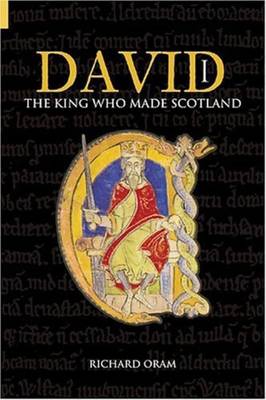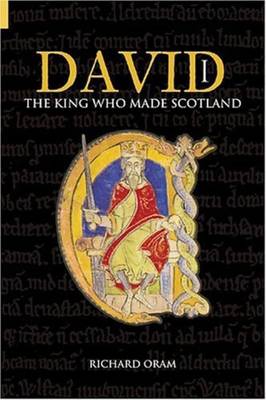
- Retrait gratuit dans votre magasin Club
- 7.000.000 titres dans notre catalogue
- Payer en toute sécurité
- Toujours un magasin près de chez vous
- Retrait gratuit dans votre magasin Club
- 7.000.0000 titres dans notre catalogue
- Payer en toute sécurité
- Toujours un magasin près de chez vous
Description
Considered to be one of the greatest of Scotland's medieval kings, David I--the youngest son of King Malcolm III and St. Margaret--was never expected to succeed to the throne. During the reigns of his elder brothers, David carved out a career for himself as an Anglo-Norman nobleman at the court of his brother-in-law, Henry I of England. With Henry's backing and the support of his elder sister, Queen Matilda, David secured a good marriage and a rich inheritance, with estates spread from Normandy to northern England, as well as a principality of his own in southern Scotland. On succeeding to the Scottish throne in 1124, he faced a long and bitter struggle against rivals for his crown, but ruthlessly imposed his authority on the kingdom and won the respect of his Gaelic lords. As king, David began the modernization of his kingdom along European lines. Many of the greatest families of medieval Scotland-- such as the Bruces, Comyns, and Stewarts--were brought in as colonists by David, and monastic communities--such as Dunfermline, Kelso, Melrose, and Holyrood--were founded by him. Reform at home was coupled by aggressive expansion abroad, with David extending his power across the whole of mainland Scotland, into the Western Isles, and finally into northern England. Skillfully playing off Stephen and Matilda--the two rivals for the English throne after 1135--David secured control of Northumberland, Cumbria, and even large parts of Yorkshire and Lancaster, tipping the balance of power in Britain firmly in favor of the Scots. It was a rich legacy to pass on to his heirs, but stripped of David's leadership, Scotland's dominant position swiftly crumbled away.
Spécifications
Parties prenantes
- Auteur(s) :
- Editeur:
Contenu
- Nombre de pages :
- 336
- Langue:
- Anglais
Caractéristiques
- EAN:
- 9780752446721
- Date de parution :
- 15-02-09
- Format:
- Livre broché
- Format numérique:
- Trade paperback (VS)
- Dimensions :
- 124 mm x 193 mm
- Poids :
- 294 g

Les avis
Nous publions uniquement les avis qui respectent les conditions requises. Consultez nos conditions pour les avis.






